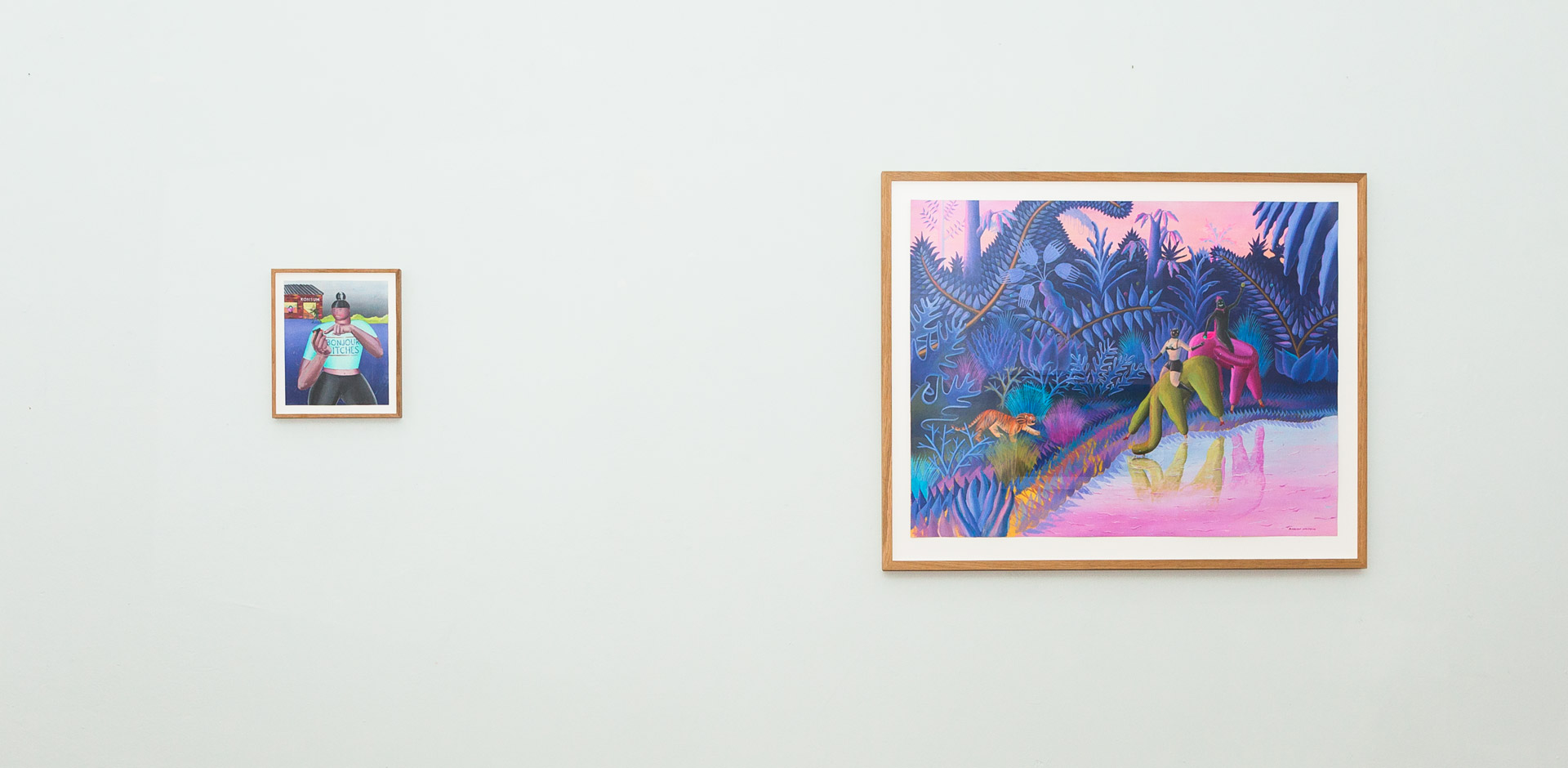Robert Deutsch is a bold user of colour. Working as both a commercial illustrator and a fine art painter, his works can be characterised as fanciful and technicolour universes that merge the labyrinthine meccas of the psyche with the eccentricities of popular culture. In particular, Deutsch concerns himself with the visual language of comic strips, which he transposes seamlessly from low to high art and back again in a playful examination of the modern human condition.
For his first solo exhibition at Weserhalle, Deutsch presents Begleiterscheinungen (Accompaniments), a series of paintings which elaborate on these well worn themes in his earlier work. Characteristic of his painterly style, the artist uses humour as a catalyst for considering the darker realities of modern life. Sarcasm, he believes, has an enormous persuasive power. In this series, Deutsch paints a troupe of unusual protagonists, parodies of the typically heroic figures found in modern literature and pop culture, and which he consequently resists placing into the idealised roles they so often occupy. Instead, they come to represent various traits of the modern person: greed, egotism and prejudice, but also tolerance, creativity and self love are among some of the attributes embodied. Included in this cast are a frolicking, hand-holding Batman and Robin duo; a silver-haired, tattooed florist called “Opium”; and a seemingly befuddled huntsman, whose vocation has been nonsensically mistaken for logger, as he looks askance at a forest of slain trees. Deutsch’s favourite among them is a character of his own creation called Bobby Feucht, an alter- ego of sorts, whom he lives vicariously through in order to better understand the human characteristics he critiques.
In other works, like “Lutherland”, Deutsch zooms out on individual actors to offer perspective on the hive-like activities of society. The work has an “I-Spy” meets “Where’s Waldo” atmosphere, where the alienating aesthetics of shopping malls reign supreme and modern life is rendered as overcrowded and absurd. In a cross-section of the urban landscape, walls are cut away to offer intimate views into both private and public realms, and via this perspective Deutsch emphasises one of the biggest issues of our time—the pathological impulse to consume—putting forward capitalism as an uncontrollable force greater than any one person. Yet, rather than constructing the scene to simply dismay his audience, Deutsch invites the average viewer to first concede to its honesty, and then finally to laugh about how their own daily lives might resemble the ones represented in the pictures.
Blending pop aesthetics with modern surrealism, Deutsch creates vibrantly ambiguous spaces inhabited by a host of strange and eccentric characters, in order to poke fun at the more sinister aspects of modern life. Nevertheless, his works retain a sense of playful humanity as he graciously let us all in on the joke.
